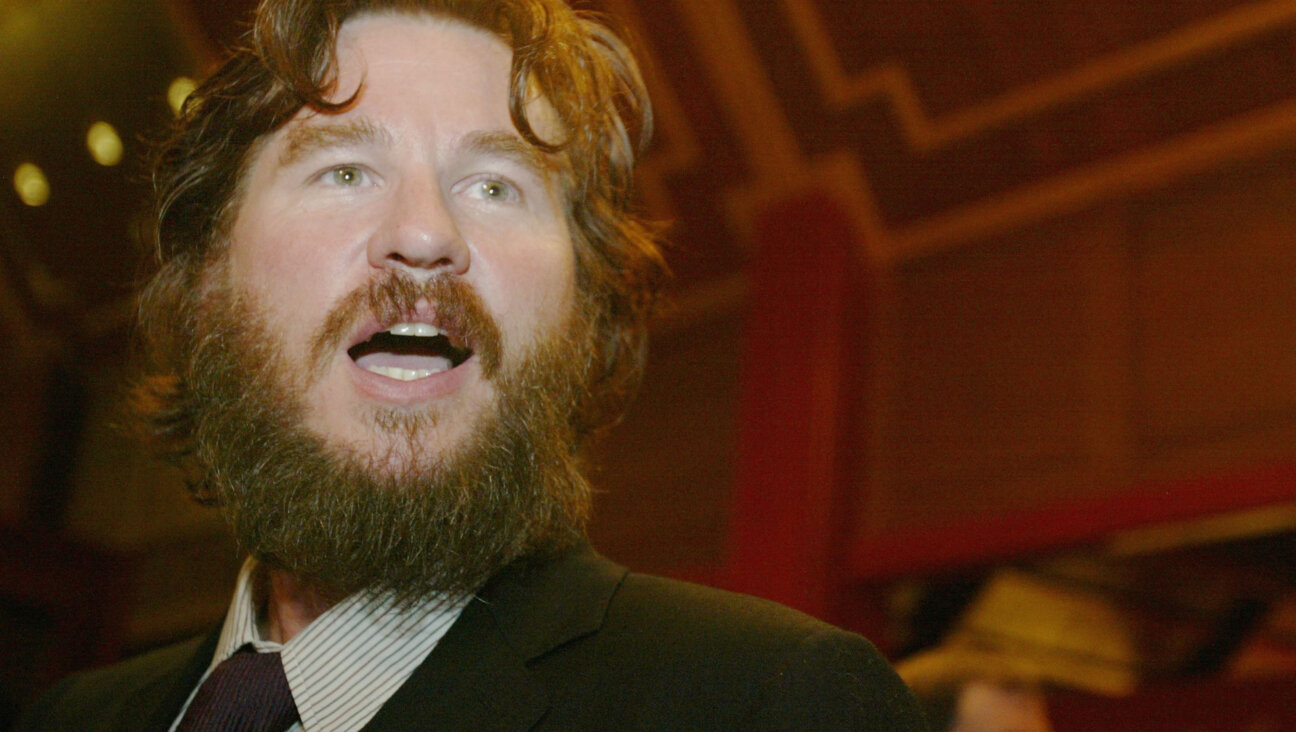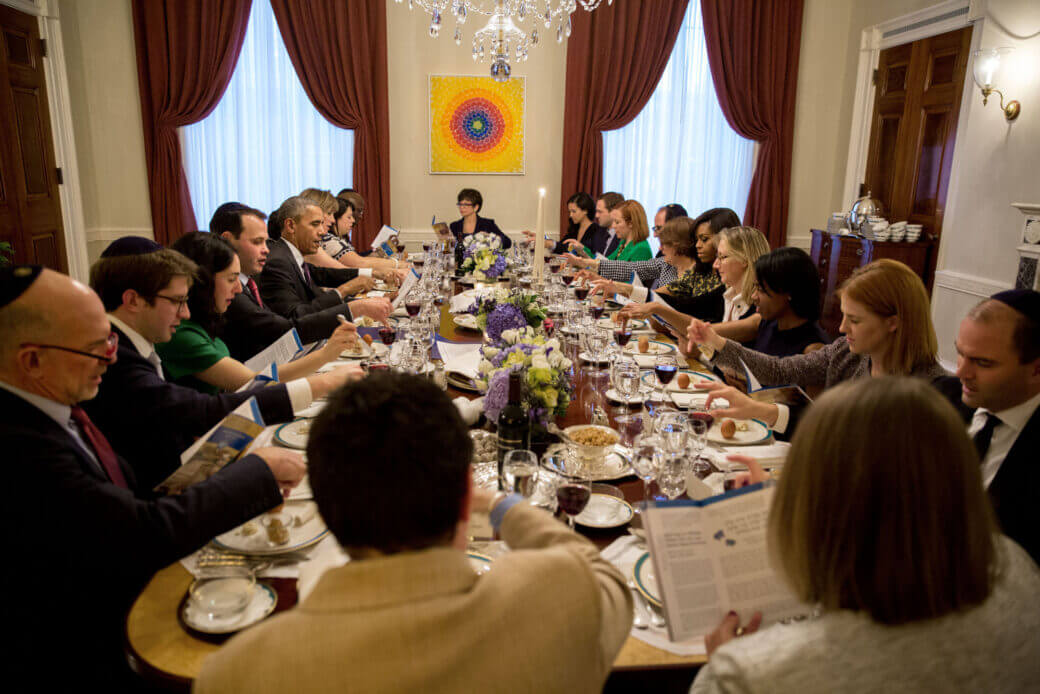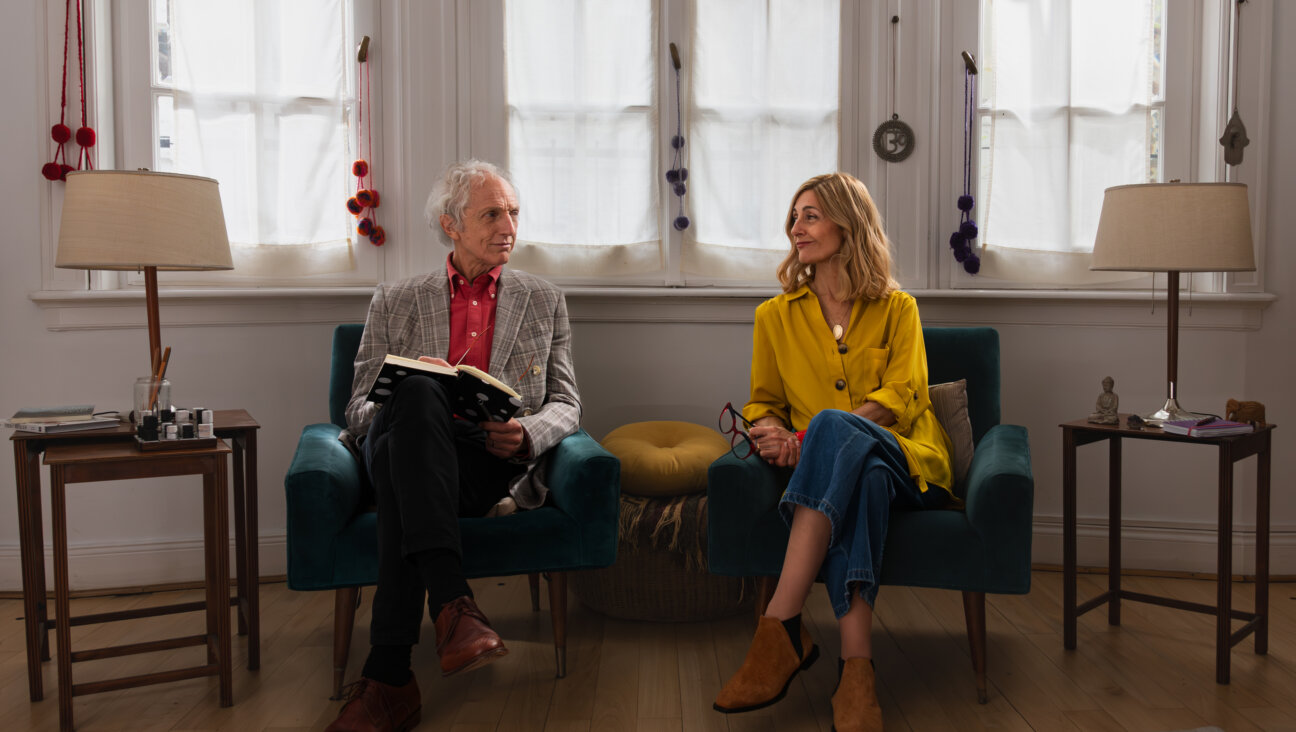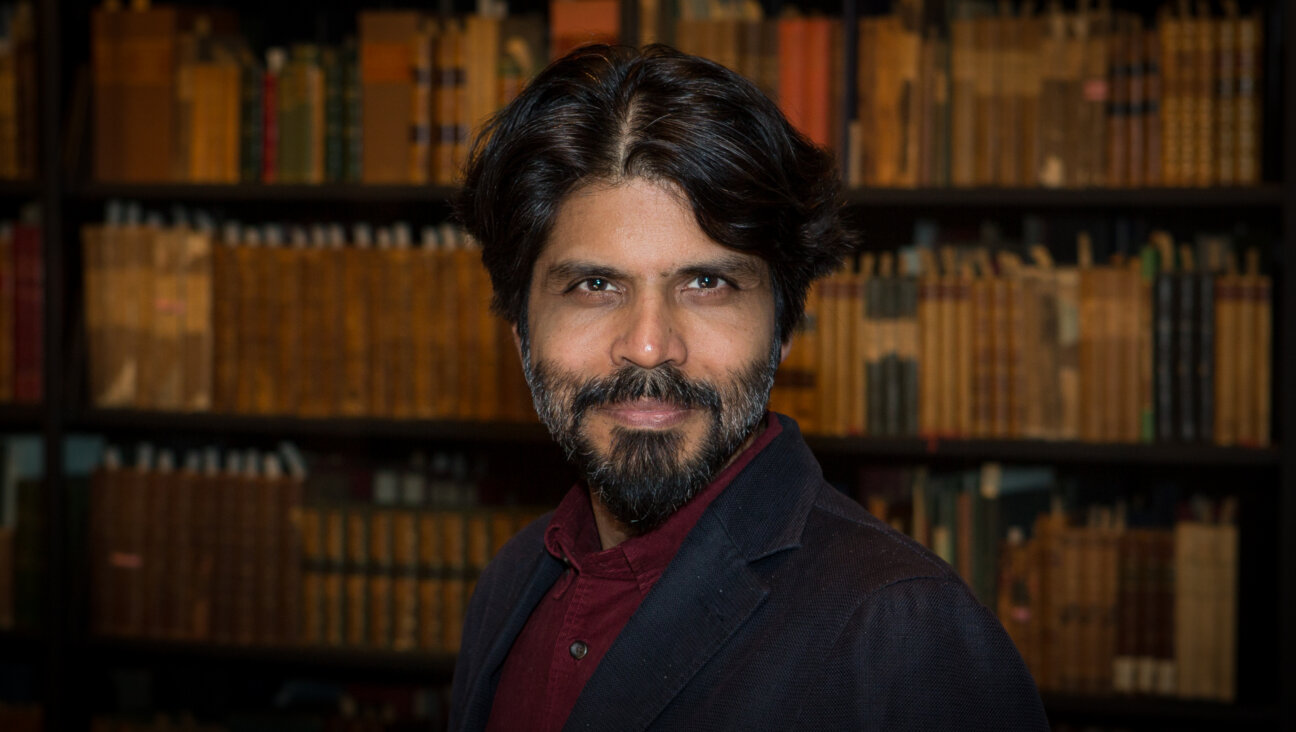‘Israel Is Slightly Smaller Than China,’ and Other Misconceptions

Journalist Donna Rosenthal was inspired to write “The Israelis: Ordinary People in an Extraordinary Land” when a CNN producer (her former journalism student) told her: “I’m confused, and our viewers are confused. We have footage of Jews who look like Arabs and Arabs who look like Jews. We have black Jews, and bearded 16th-century-looking Jews in black hats and sexy girls in tight jeans. Who in the world are these people?” Rosenthal — a former Israel TV news producer and Israel Radio reporter whose articles have appeared in the Los Angeles Times, The New York Times, Newsweek and The Atlantic — decided to write a “bible” for reporters who cover Israel. This country, about one-eighteenth the size of California, has more reporters per capita than any other. Since the April release of the 2008 paperback edition of “The Israelis” (Free Press/Simon & Schuster), especially updated for Israel’s 60th anniversary, Rosenthal has been interviewed on many radio and TV programs and is finding that confusion and misunderstanding about Israelis abound.

A reporter in Connecticut whose radio show is syndicated to 300 stations asked me, “If I wanted to visit Israel, are there any modern hotels to stay in?” I told her that not only would she would she find modern hotels, but also that high-tech is the engine that drives the Israeli economy, and that within one hour you can meet Israelis at Intel who designed the Pentium and Centrino chips used in most of the world’s computers — as well as the teenage third wife of a Bedouin who lives in a tent and watches soap operas by satellite dish.
An astounding number of reporters know very little about non-Jewish Israelis. One reporter asked me, “Why don’t Israelis throw all the Arabs out of Israel?” He didn’t know that one in five Israeli citizens is Arab Muslim, that about 25% of Israeli children are Muslim, that the most common name for an Israeli boy is Muhammad or that Israeli Muslims are teachers, bus drivers and members of the Knesset — which has a mosque and a synagogue inside.
A nationally syndicated radio reporter in Washington, D.C., who had visited Israel argued with me on air that the Druze are Muslims. She didn’t know that Druze is a religion; that after Druze men are drafted, they swear in on their secret holy book, or that Muslim volunteers for the Israel Defense Forces swear in on the Quran.
Another time, while I was in a TV studio with an editor who has worked for PBS’s “NewsHour,” an Israeli friend arrived to meet me for lunch. In front of the Israeli, I asked the editor if he knew what a Druze is. “Yes,” he answered, “they’re terrorists.” Then I introduced the Jewish editor to the Israeli: Ambassador Reda Mansour, Israel’s consul general in Atlanta — and a Druze.
Yasser Mansour, an Israeli Muslim pediatrician from Haifa whose patients are Jewish and Arab children, is profiled in one chapter in “The Israelis.” While he was in San Francisco for a medical conference, I took him to an event at a Jewish community center. During the talk, the speaker asked the audience how many knew what Lag b’Omer was. No one responded. Yasser, a Sunni Muslim, shyly raised his hand and explained the meaning of the holiday to some 300 Jews. I’ve discovered that young Israeli Muslims, Christians and Druze often know better Hebrew and more about Judaism than many do Jewish Americans.
During Passover last month, a Presbyterian pastor asked me on radio about this holiday, which all “the Israelites” are celebrating. I had to explain to him that not all Israelis are Jews — that on Orthodox Palm Sunday, April 20, many Israeli Greek and Russian Orthodox Christians were celebrating Easter. In fact, of all Israelis, Christian Arabs are the most affluent and highly educated per capita, and the Christian Bible is a fast-growing holy book in the Israeli army. More than half the former Soviet immigrants are not Jewish, and the IDF has a small but increasing number of Christian Arab volunteers.
And Israelis are sometimes no less ignorant about their fellow Israelis, especially those from different religious, ethnic or political backgrounds. The host of a weekly New York radio show asked me what impact the avalanche of immigrants from the former Soviet Union is having on Israel. When I offered a positive answer, an irate caller, identifying herself as an ultra-Orthodox Israeli, admonished me: “Those Russians are prostitutes and mafia, and they’re taking our jobs.” In fact, these immigrants are an enormous brain gain, giving Israel the world’s highest number per capita of engineers, scientists and unemployed orchestra conductors. About 25% of Israel’s high-tech employees were born in the former Soviet Union.
During a morning “drive-time” interview, a Jewish radio reporter in New York City asked me, “Why don’t Israelis move to a safer country?” I was speaking from bed — it was 4 a.m., Pacific Time — and wanted to pull the blanket over my head. Another Jewish reporter for a California radio station, trying to end her interview on an upbeat note, asked, “So, what’s the final solution for the Jews?”
I once gave my university journalism students a multiple-choice exam with this question: What is the size of Israel? Quite a few chose “slightly smaller than China.” One of my best students interviewed a former Auschwitz inmate, and in her article she identified him as a “survivor of a concentration campus.” “Is ‘campus” a typo?” I asked. She responded no. Today she’s a reporter on an NPR affiliate.
Donna Rosenthal blogs at www.donnarosenthal.com.
The Forward is free to read, but it isn’t free to produce

I hope you appreciated this article. Before you go, I’d like to ask you to please support the Forward.
At a time when other newsrooms are closing or cutting back, the Forward has removed its paywall and invested additional resources to report on the ground from Israel and around the U.S. on the impact of the war, rising antisemitism and polarized discourse.
Readers like you make it all possible. We’ve started our Passover Fundraising Drive, and we need 1,800 readers like you to step up to support the Forward by April 21. Members of the Forward board are even matching the first 1,000 gifts, up to $70,000.
This is a great time to support independent Jewish journalism, because every dollar goes twice as far.
— Rachel Fishman Feddersen, Publisher and CEO
2X match on all Passover gifts!
Most Popular
- 1

News A Jewish Republican and Muslim Democrat are suddenly in a tight race for a special seat in Congress
- 2

Film & TV What Gal Gadot has said about the Israeli-Palestinian conflict
- 3

Fast Forward The NCAA men’s Final Four has 3 Jewish coaches
- 4

Fast Forward Cory Booker proclaims, ‘Hineni’ — I am here — 19 hours into anti-Trump Senate speech
In Case You Missed It
-

News Who would protect New York Jews better? Cuomo and Lander trade attacks on the campaign trail
-

News Rabbis revolt over LGBTQ+ club, exposing fight over queer acceptance at Yeshiva University
-

Opinion In Qatargate fiasco, Netanyahu’s ‘witch hunt’ narrative takes cues from Trump
-
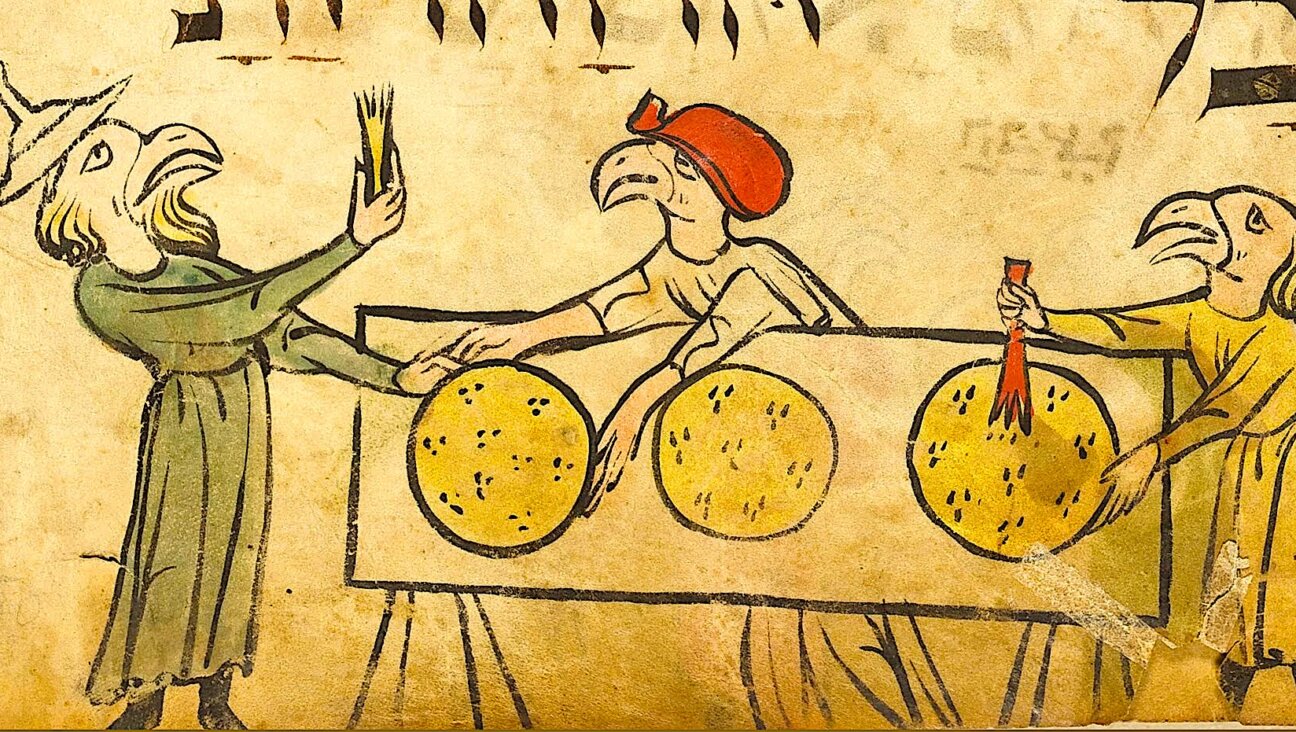
Yiddish די הגדה ווי אַ לעבעדיקער דענקמאָל פֿון אַשכּנזישער פּאָעזיעThe Haggadah as a living monument to Ashkenazi poetry
אַמאָל זענען די פּייטנים, מיסטישע דיכטער־וויזיאָנערן, געווען אויבן־אָן בײַ די פֿראַנצויזישע און דײַטשישע ייִדן.
-
Shop the Forward Store
100% of profits support our journalism
Republish This Story
Please read before republishing
We’re happy to make this story available to republish for free, unless it originated with JTA, Haaretz or another publication (as indicated on the article) and as long as you follow our guidelines.
You must comply with the following:
- Credit the Forward
- Retain our pixel
- Preserve our canonical link in Google search
- Add a noindex tag in Google search
See our full guidelines for more information, and this guide for detail about canonical URLs.
To republish, copy the HTML by clicking on the yellow button to the right; it includes our tracking pixel, all paragraph styles and hyperlinks, the author byline and credit to the Forward. It does not include images; to avoid copyright violations, you must add them manually, following our guidelines. Please email us at [email protected], subject line “republish,” with any questions or to let us know what stories you’re picking up.







